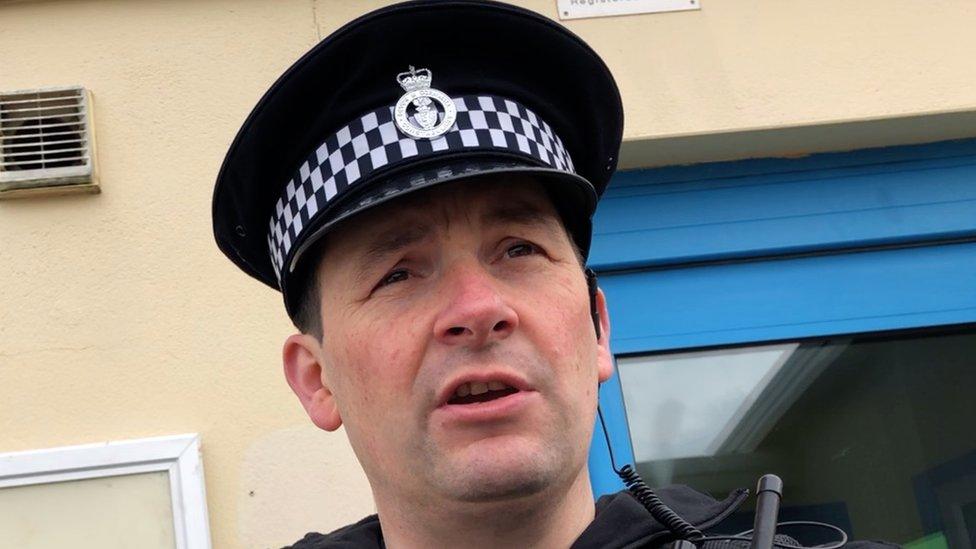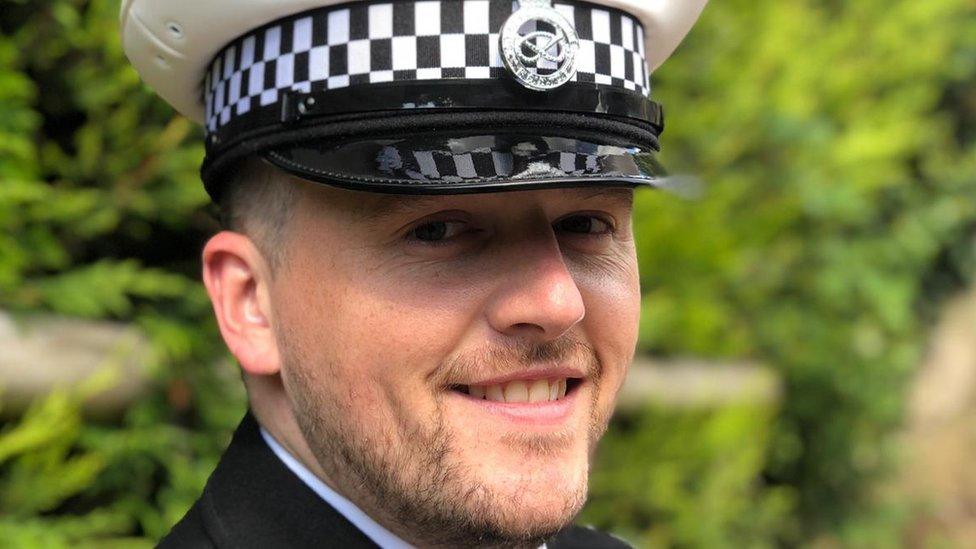Ex-Hampshire police officer welcomes mental health screening
- Published
Keith Waller retired on medical grounds from Hampshire Constabulary
A police officer who left the force after traumatic experiences on duty has welcomed compulsory psychological screenings for officers and staff.
Keith Waller, 60, said Post Traumatic Stress Disorder (PTSD) during his 19-year career "ruined everything".
Hampshire Constabulary has expanded screening in a bid to identify mental health issues among officers and staff.
The force said it would be "far more proactive" in helping them deal with stressful situations.
Mr Waller earned commendations for his career during which he had to deal with road accidents, violence and suicides.
He was admitted to hospital twice after suffering episodes of PTSD, which led to him retiring on "injury on duty" grounds in 2013, aged 54.
"I still have flashbacks, I still have nightmares," he said.
"Don't get me wrong, I loved policing and what I was doing for the community but deep down it ruined everything."
'Not cannon fodder'
Hampshire Constabulary said mental health issues were now the main cause of sickness absence within the force.
Under the scheme, all existing officers and front-line staff will take a confidential online questionnaire to flag up any potential problems which are then explored in a face-to-face interview.
They could then be referred to a force psychologist and for further treatment.
Only "high risk" positions such as firearms officers and child sex abuse investigators have previously had screening.
With budget cuts in recent years leading to a reduction in police numbers, Deputy Chief Constable Sara Glen admitted officers were working in a "high trauma environment".
She said: "They're not cannon fodder. They need to be protected. That's why we've needed to get far more proactive, so if we are showing signs of burnout we can get services in much quicker."
Mr Waller said screening "can only be a good thing".
"I do wish I'd had it because I don't think I'd be how I am now," he added.
- Published21 November 2019

- Published16 October 2019

- Published9 May 2019